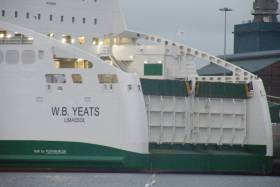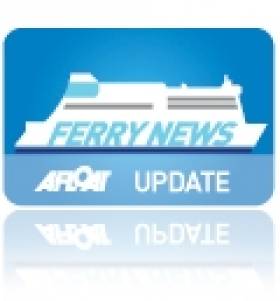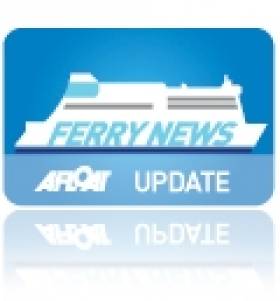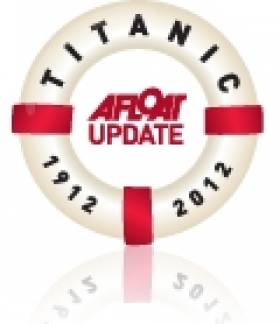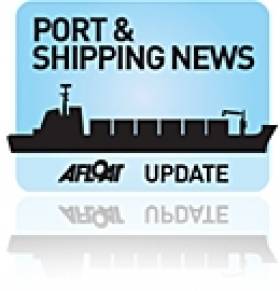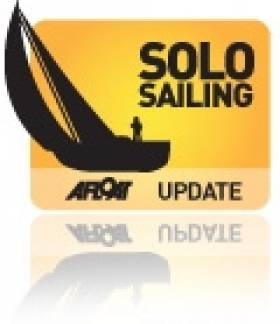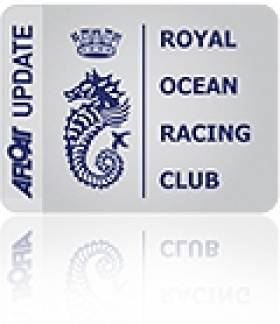Displaying items by tag: Cherbourg
Exporters have generally welcomed next week’s changes to ferry timetables that, between Irish Ferries and Stena Line, will see a sailing from Ireland to Cherbourg every day of the week on alternating weeks, as AgriLand reports.
The change from next Monday 27 May will see Irish Ferries’s new and award-winning WB Yeats sail from Dublin to Cherbourg on Monday, Wednesday and Friday one week, then Sunday, Tuesday, Thursday and Saturday the following week, and so on until the end of September.
Stena Line sails from Rosslare to Cherbourg every Tuesday, Thursday and Saturday, meaning that next week and every fortnight thereafter there will be a sailing once a day from Ireland to the French port.
The change is being seen as a positive one by exporters — however complaints remain over lack of dialogue from the Department of Agriculture, Food and the Marine. AgriLand has more on the story HERE.
#ferry – This weekend (Saturday, 18th January 2014), Irish Ferries will inaugurate its new direct weekend car ferry service between Dublin and the French port of Cherbourg. As previously reported, the new 19-hours service will be operated by the passenger car and freight ferry vessel Epsilon which the company acquired recently under a charter arrangement. Sailings will depart from the Ferryport terminal in Dublin at 15.30 hrs on Saturday and will arrive in Cherbourg at 11.30hrs on Sunday morning. It will return to Dublin later that day, departing Cherbourg at 17.00hrs arriving back in Ireland on Monday morning.
Third Route Option
The introduction of the new Dublin to Cherbourg service gives holidaymakers travelling into and out of Ireland a third route option, augmenting, as it does, the company's services from Rosslare to Cherbourg and Rosslare to Roscoff. Timed to arrive in Cherbourg early enough to facilitate easy onward travel to campsites and holiday centres throughout France, the new service is expected to prove popular with families and hauliers alike.
On board Epsilon, the once-weekly, year round service will offer a more limited range of cabins and passenger attractions when compared with those on board the company's cruise ferry Oscar Wilde which will continue to service routes from Rosslare to Cherbourg and Roscoff as before.
Bringing access to European motorways into the heart of Dublin city, the new service will extend the appeal of a motoring holiday in France to an even wider market. For those living in the northern half of the country, it eliminates driving to Rosslare and cuts the motoring time and cost involved.
MV Epsilon
Built in 2011, the Epsilon has capacity for 500 passengers. Modest facilities on board include a bar, cafeteria, self-service restaurant, 68 two and four berth cabins all with TV, free wi-fi service and 2,860 lane metres of vehicle deck parking space. Commenting Irish Ferries head of passenger sales, Dermot Merrigan said 'our new Dublin to Cherbourg direct service will appeal to those living within and beyond our capital city. Fast access straight through the city or from the Dublin Port Tunnel ensures that our new Ireland – France service will be more accessible to all.'
Fares and offers for this new Dublin to Cherbourg service can be viewed on the Irish Ferries website www.irishferries.com . When not operating on the Dublin to Cherbourg service, Epsilon will sail between Dublin and Holyhead increasing Irish Ferries services on the route to a maximum of twelve sailings each day.
Sail to Ireland with Celtic Link for Next to Nothing!
#FERRY NEWS - Celtic Link Ferries have announced their best ever ferry deal between France and Ireland to coincide with The Gathering 2013.
On Friday 15 March 2013 - in time for the St Patrick's Weekend festivities - all vehicles will sail from Cherbourg to Rosslare Europort for just €1 each.
The fantastic deal is inclusive of a vehicle, cabin and the people in the cabin - but act fast, as this 'next to nothing' offer is available for this one day only.
“Celtic Link Ferries are simply bringing in as many passengers as they can - for as little price that they can,” says passenger manager Rory McCall.
Bookings for this day can be made at www.celticlinkferries.com.
Tours of Titanic’s Tender SS Nomadic
#TITANIC'S TENDER - While all the attention is focused on the R.M.S. Titanic and the newly opened Titanic Belfast visitor experience, the White Star Line passenger tender SS Nomadic is only a stone's throw away from the venue, writes Jehan Ashmore.
Like the liner she was built by Harland & Wolff and her launch took place in 1911. She was commissioned by White Star Line as a 1st and 2nd class passenger tender for Titanic and sister Olympic.
The Nomadic carried out her duties based in Cherbourg, where she transferred passengers to the Titanic on her only call to the Normandy port. As such the vessel which is registered in the French port, is the last surviving White Star Line vessel in the world and the only remaining authentic link to the ill-fated liner.
Decades later, the Nomadic became a floating restaurant on the River Seine in Paris close to the Eiffel Tower, where the venture which started in 1977 remained formore than twenty years.
The ageing vessel faced new safety regulations threatening her fate which ultimately led to her being seized in 2002. She was then offered for sale and then followed a court action for her to be scrapped but a campaign was raised to save the historic vessel which succeeded in her securement.
At 95 years old she was towed by barge back to her builder's birthplace in Belfast in 2006. Now that she is over a century old the vessel is currently undergoing restoration by the SS Nomadic Charitable Trust. She is dry-docked in the Hamilton Dock which adjoins the new iconic landmark of the Titanic Belfast building within the developing Titanic Quarter.
Yesterday 'hard-hat' tours began of the preserved liner tender and it is essential to note that tickets are to be 'pre-booked' with the last tour on 15th April. Daily tours are at 10.30, 12 noon, 2pm and the last tour is 3.30pm. To ensure availability visit: www.nomadicbelfast.com/book-a-tour
For further information about the various visitor attractions and events click the following headings, to be directed to the relevant websites.
The history of the S.S. Nomadic
Titanic Belfast Festival (31 March -22 April)
Titanic Belfast Visitor Experience
Following yesterday's inaugural cruise call to Belfast this year of Balmoral as previously reported the Fred. Olsen Cruise Lines vessel was making a cruise in memory of the liner. To see the list of the other cruiseships calling to the city, click HERE.
- RMS Titanic
- SS Nomadic
- White Star Line
- Nomadic Charitble Trust
- Harland & Wolff
- H&W
- Cherbourg
- White Star Line passenger tenders
- Hamilton Dock, Belfast
- Port of Belfast
- Belfast Lough News
- Cruise ships
- Cruise Liners
- Balmoral
- Fred. Olsen Cruise Lines
- Restaurant river Seine boats
- Titanic Belfast
- Titanic Quater
- Titanic Belfast Festival
- RMS Olympic
Ferry-Go-Round on the Irish Sea
In the case of Irish Ferries, their Rosslare-Pembroke Dock route vessel, Isle of Inishmore arrived on the Mersey yesterday at the Cammell Laird dry-dock facility in Birkenhead.
The 1997 Dutch-built Isle of Inishmore had relieved the 50,938 tonnes 'flagship' Ulysses from the Dublin-Holyhead route which too had gone to Birkenhead for maintenance since January 4th.
The Ulysses is now back on service and the company's French routes cruiseferry, Oscar Wilde is covering the Isle of Inishmore's absence from Rosslare-Pembroke Dock sailings.
Continental services to France on the Rosslare-Cherbourg route will resume on February 16th when the Oscar Wilde returns from her overall. The Bahamas flagged vessel will re-open seasonal Rosslare-Roscoff sailings starting on May 13th.
In addition to conventional tonnage Irish Ferries also operate the fast-craft catamaran Jonathan Swift in tandem with Ulysses on the Dublin-Holyhead route. The Ulysses takes 3 hours 25 minutes while the 39-knot catamaran craft marketed as the Dublin 'Swift' is advertised with a scheduled passage time of 1 hour and 49 minutes.
The Australian-built catamaran was taken off the central corridor route yesterday to be drydocked also in Birkenhead until January 18th. Dublin Swift sailings return to the Dublin-Holyhead route on February 19th with the first crossing to depart at 14.30 hours from the capital port.
For the latest information on ferry sailings and reservations click: www.irishferries.com
Belgian Determined to Make Start Line despite Dismasting
Belgian solo sailor Christophe Bullens was dismasted this morning off the coast of France en route to the start of the Velux 5 Oceans.
The 49-year-old skipper had been sailing his Eco 60 class yacht Five Oceans of Smiles in 18-knot winds and choppy seas 15 miles from the Normandy coast when disaster struck.Christophe was down below with another crewmember while two more crew were on deck. They then heard a snapping noise, thought to have been one of the mast's shrouds breaking. Christophe raced on deck and saw the mast snap in two places. All four crew were able to react in time to avoid the falling mast and no-one was injured.The sails and rigging ended up under the boat, blocking the propeller. CROSS Jobourg, the regional centre for maritime surveillance and safety, dispatched a rescue boat from Cherbourg to aid Five Oceans of Smiles.
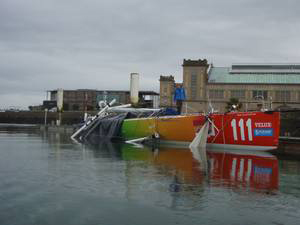
It took more than two hours to prepare Five Oceans of Smiles for the tow back to Cherbourg, which then took three hours.
The dismasting caused serious damage to the starboard side of Five Oceans of Smiles including a hole in the hull by the ballast tanks. The sails are beyond repair. Christophe had been on his way to La Rochelle, home of the 30,000-mile solo ocean race which starts on October 17. The dismasting comes just weeks after he completed a gruelling 2,500-mile qualifying passage from Plymouth in the UK to the southern tip of Ireland then round the Azores off Portugal. During the passage Five Oceans of Smiles was tested in a wide range of weather conditions from strong winds and big seas to light airs. On Christophe's arrival back to Belgium Five Oceans of Smiles' rigging was thoroughly inspected. Earlier this week parts of the rigging were completely replaced. "Nothing is finished," Christophe said after reaching Cherbourg. "I will do everything to be on the startline in La Rochelle on the 17th of October."Christophe's Team Sapphire, aided by the VELUX 5 OCEANS race management team, are now doing all they can to ensure Christophe makes the start of The Ultimate Solo Challenge.
RORC Success for Hurley and Martin in Cherbourg
Nick Martin and Cobh's Barry Hurley co-skippered "Diablo-J", a J-105, to not only win the RORC trophy for the Two–Handed Division, but took home the Yacht Club de France trophy for IRC 2 and the Cherbourg trophy for IRC Overall too.
The race started on a perfect sunny early September evening. With the tide and wind behind them, the fleet of 53 yachts set off towards the Needles under spinnaker. However, it wasn't long before wind holes began to appear, particularly off Yarmouth, and the leg out of the Solent became tricky; it turned out to be the hardest part of the race.
Once in the Channel it was a close reach on port all the way to Cherbourg. It was too close for spinnakers but a fast leg nonetheless. As usual the wind went light off Cherbourg so it was vital to be up-tide of the harbour entrance.
First to finish was the Farr 52 Bob at 03 09 56 with an elapsed time of just under 8 hours; indeed it was a quick race for the whole fleet and the last boat finished at 09 41 37. Bob took the Quailo Cup – the trophy for IRC Zero and Super Zero combined. Mike Greville won IRC Zero in his Ker 39 Erivale III. IRC 1 went to Marc de St Denis and Géry Trentesaux in their First 40 Coup de Coeur. IRC 3 was won by Renaud Courbon in the JPK 9.60 Ultreia!
Interviewed after the race, Nick Martin and Barry Hurley talked about their winning strategy: "The race was won and lost on the start line. We realised that the Solent part of the course was going to be make or break before the drag race across the Channel.
We chose to start at the leeward (ODM) end of the line. This gave us clear wind and a good hot wind angle down the Solent. We were very aware of the holes on the island shore. We knew we were not necessarily in the best of tides, but decided that the wind strategy was more important. We were also in good company with Bob and Psipsina."
"The majority of boats were drifting through tide holes, but we stayed on the same gybe with a good angle, all the way down to the Needles. The other boats got sucked into the island side and we avoided it. We had holes, too, but got through Hurst beautifully in second place behind Bob. The fleet were destroying each other, pushing one another up into more tide. Venomous and Psipsina came through on the inside of the Needles, caught a bit of wind and caught us up. When we all caught the same wind, we were off. The four of us were probably 20 minutes ahead of the rest of the fleet at the Needles."
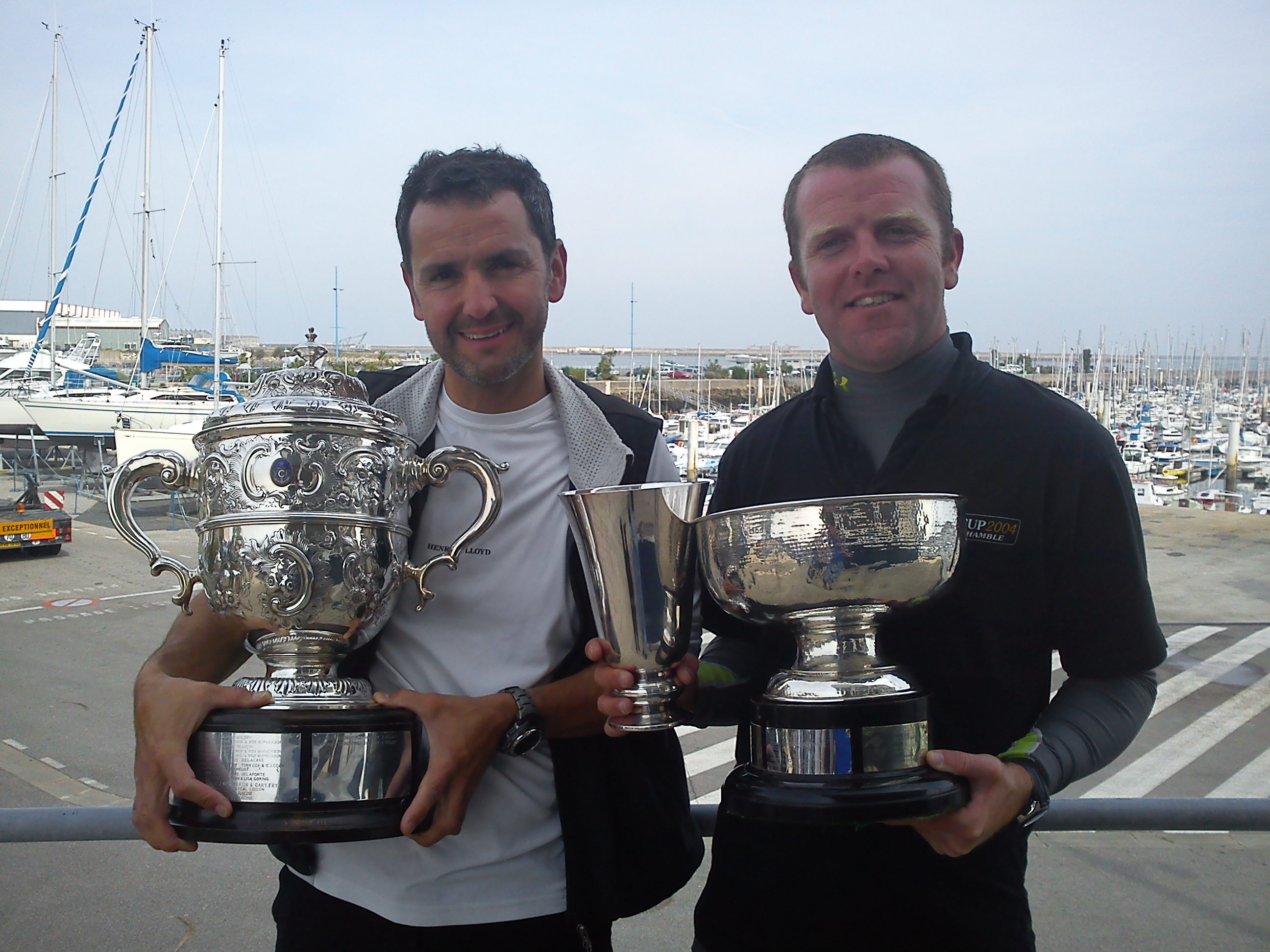
All that was left was the quick trip across the Channel – drop the kite, and up with the big No.2 jib. The only thing interesting about that long leg was that our original heading brought us right in to Cherbourg with a single 4 degree variation one mile out. We pre-judged the heading for the tide 6-7 hours ahead and were heading lower than most of the fleet, who had to try to come down much later. We had 15 – 20 knots with a true wind angle of 50-70 degrees."
"For us the wind only dropped slightly down to maybe 15 knots as we approached Cherbourg, but we got in before it really dropped off at sunrise. It was a brilliant race, really good, and we are delighted with the result. We thought we had the Two – Handed sewn up, we suspected that we had the class result, but to get the overall win was great." Nick Martin was delighted to win his first major RORC overall trophy. "It underpins my belief that the RORC produces and supports great races and provides a fantastic opportunity for two-handed racing."
Rosslare Europort
Rosslare Europort
Rosslare-Europort is located on the south-eastern tip of Ireland, and is the closest point in the south of the country to the UK and continental Europe.
There are regular sailings to Fishguard (with Stena Line); to Pembroke, Cherbourg, and Roscoff (with Irish Ferries); to Cherbourg (with Celtic Link Ferries); and to Le Havre (with UECC).
Rosslare-Europort, being the closest point from the southern part of Ireland to the UK and the European Mainland, is a hub of all the major RORO Passenger and Freight services operating the southern Irish Sea and Continental routes.
Enquiries relating to timetables, rates, fares, etc. on existing services should be addressed directly to the relevant shipping line (contact information is available on their respective websites – see links below).
Ferry Reservations – Please visit our partner site, aferry.to, to find out about the route schedules and booking information.
Getting to/from Rosslare Harbour by Sea – There are regular services to Cherbourg, Fishguard, Le Havre, Pembroke, and Roscoff. Book a sailing here.
Getting to/from Rosslare Harbour by Rail – There is a railway station in the port itself, Rosslare-Europort station. There are services to Dublin, Waterford, Cork, Kerry, and Limerick. See Irish Rail's website for more information.
Getting to/from Rosslare Harbour by Bus – Bus Eireann provide good services at Rosslare, linking it with Dublin, Cork, Waterford, Wexford, and it is possible to get connecting buses from there to your final destination. For more information, see Bus Éireann's website.
Getting to/from Rosslare Harbour by Car – Rosslare Harbour is located on the N25 route, which runs across the south of the country, connecting Rosslare with Waterford and Cork. If travelling from Dublin, take the N11 south to Wexford, from where you can turn onto the N25 east to Rosslare Harbour. If hiring a car, check out our car hire guide.
Rosslare Harbour Accommodation – Please see our Rosslare Harbour Accommodation page.
More Information – Rosslare Europort is operated by Iarnród Éireann (Irish Rail), and more information can be found on their website.
Trade enquiries regarding port access, rates, etc. should be addressed to:
Rosslare Europort John P Lynch, General Manager Rosslare Europort, Iarnród Éireann, Terminal Building, Rosslare Europort, Co Wexford. Tel: +353 (0) 53 915 7970 , ax: +353 (0) 1 886 0511 , or email: [email protected]


























